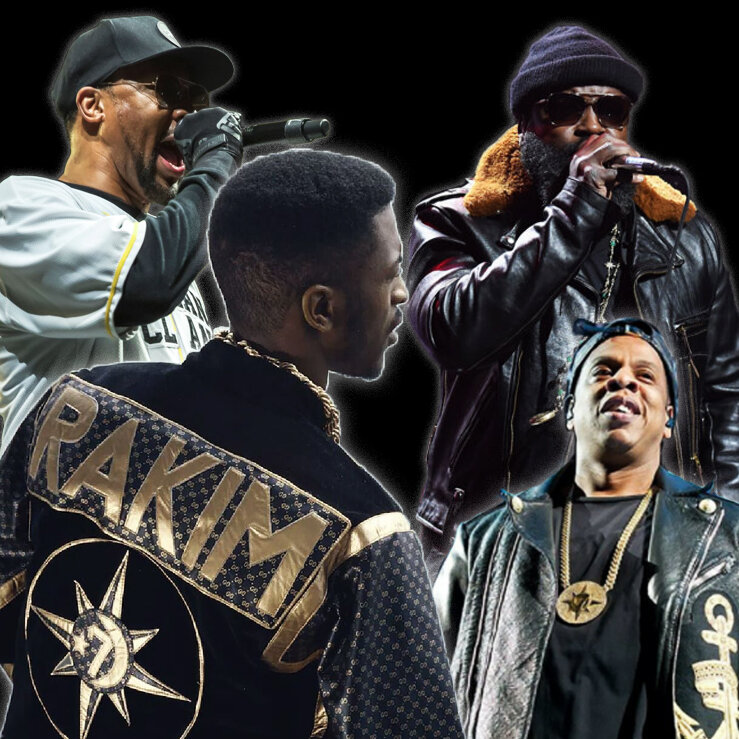Spirituality in Hip Hop Pt. 2: Peace God
“Cause yeah, we were beginners in the hood as Five Percenters
But somethin’ must’ve got in us, ‘cause all of us turned to sinners”
September 29, 1998, is a day many ol’ heads—present company included—will remember as the greatest hip hop album release date EVER! On that definitive day, the following records dropped.
“Vol. 2…Hard Knock Life,” Jay-Z
“Aquemini,” Outkast
“Mos Def & Talib Kweli Are Black Star,” Black Star
“The Love Movement,” A Tribe Called Quest
“Foundation,” Brand Nubian
The ‘90s marked a spiritual peak in hip hop. Groups like Tribe, Brand Nubian, and Black Star infused their rhymes with Islamic references that were both bewildering and captivating.
Back then we were rocking Phat Farm, calling each other Sun, and repeating lyrics we probably didn’t completely understand. The verses felt like windswept wisdom from Arabia but were actually something quite different.
The Five Percent Nation, also known as the Nation of Gods and Earths (NGE), predates the birth of hip hop by at least a decade. Yet, the ‘60s teachings of founder Clarence 13X (also known as “Allah” and “the Father”) became the de facto source of revered belief for a generation of rappers. A dogma that preaches black self-realization through the conviction that the black man is god, ALLAH — Arm, Leg, Leg, Arm, Head.
The official video for "Wake Up" by Brand Nubian from their 1990 album 'One for All'
Artists like Brand Nubian, Rakim, and Wu-Tang Clan crafted esoteric rhymes out of Five Percenter lessons. The “god emcees” introduced the world to a vocabulary that continues to influence hip hop culture. One small example is “peace.” The salutation that spread from cities to suburbs originates from the NGE.
Everybody, from Nas, Busta Rhymes, Gang Starr, Big Pun, Jay-Z to ethereal songstress Erykah Badu, has incorporated the Five Percenter lexicon into their music. In his book, “The Wu-Tang Manual,” RZA, of Wu-Tang Clan, breaks down the group's name as “Wisdom of the Universe and the Truth of Allah for the Nation of the Gods.”
“The God, send you back to the earth from which you came.”
The NGE is more a movement—a way of life born of intransigence—than a religion. The Five Percenters splintered from the Nation of Islam (NOI) in 1963. After the ‘69 murder of its founder, the group went through periods of limbo that challenged its members’ tenacity.
The gods have been labeled a gang, black supremacists, and the “hell’s angels of black America.” The group was nearly scapegoated for the 2002 DC sniper shootings when authorities found a tape of the rap group, and Wu-Tang Clan affiliate, Killarmy, in John Allen Muhammad’s vehicle.
The NGE story is one of survival. Through the decades the Five Percenters have embodied the hopes of the post-civil rights era, the urban decay of the Reagan years, and hip hop’s golden age. Their message isn’t as prominent in music today, but there are still echoes of NGE motifs.
Detroit rapper Big Sean walks in the tradition when he rhymes, “God body, why would I ever compare me to a man?” on Benny the Butcher’s, “Timeless.”
Rick Ross gives a nod to the gods on “Apple of My Eye,” when he spits “I'm happy Donald Trump became the president because we gotta destroy before we elevate…” Building (bringing positivity) and destroying (ridding the self of the negative) are concepts taken from Supreme Mathematics, a complex numerological system that unlocks Five Percenter tenets.
There are many branches of Islam, but Five Percenters will be the first to tell you that they are not among them. Many orthodox Muslims would view the music created by NGE rappers as haram (forbidden). In part 3, and my last post on spirituality in hip hop, I will explore Islam and rap.

